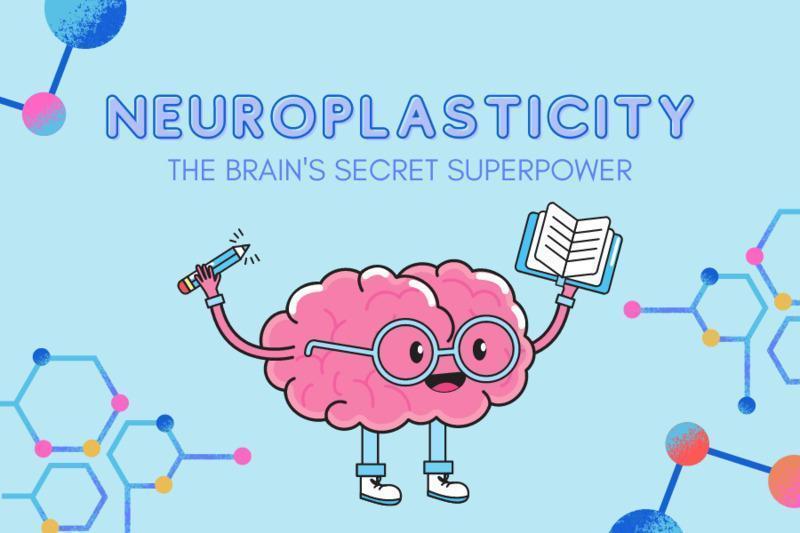Unveiling 7 Aspects of Enhancing Cognitive Abilities to Improve Autism
Feb 07, 2024 By Nancy Miller
Emerging as a groundbreaking approach, Cognitive Enhancement Therapy (CET) brings optimism to adults traversing life on the autism spectrum. It goes beyond conventional interventions and pioneers a transformative journey. It boosts cognitive skills while fostering holistic well-being.
1. Understanding Cognitive Enhancement Therapy
Cognitive Enhancement Therapy (CET), at its core, dynamically intervenes to elevate cognitive functions in adults with autism. Unlike conventional methods which primarily concentrate on symptom management, CET probes the intricacies of cognitive deficits that frequently impede daily life. It addresses these underlying challenges. By doing so, it equips individuals not just for survival but to navigate adulthood's complexities with sharpened cognitive abilities. The therapy employs a dynamic blend of cognitive exercises and personalized strategies. These not only zero in on specific deficits but also foster overall cognitive growth.
CET, in addition to its incorporation of the principles of neuroplasticity, recognition, and acknowledgment of the brain's adaptability plus capacity for change, establishes this as a foundation for therapy effectiveness. It fosters continuous improvement. By pioneering an era in autism intervention via harnessing potential within the brain for positive change. CET offers not just any approach but one that is comprehensive and transformative.
- Consideration: It's important to note that CET requires a personalized approach, adapting to the unique cognitive profile of each individual. Tailoring interventions based on specific cognitive domains ensures a more effective and meaningful impact.
- Caution: While CET is a promising intervention, it's essential to set realistic expectations. Results may vary among individuals, and progress is often gradual. Patience is key in the journey towards improved cognitive outcomes.
2. Tailoring Interventions for Adult Needs
Cognitive Enhancement Therapy (CET), with its intricate tailoring of interventions to suit the unique needs of adults on the autism spectrum, distinguishes itself. CET acknowledges and addresses beyond a generic strategy, recognizing that this demographic encounters ever-evolving challenges. The therapy excels in customizing interventions. These specifically target crucial cognitive domains for successful adulthood navigation. CET offers a comprehensive and individualized spectrum of cognitive skills development, refining executive functions and enhancing social cognition.

CET's adaptive nature facilitates continuous adjustments as the individual advances. This recognition is particularly crucial for adults with autism who may encounter an array of challenges. The therapy, aware of these potential hurdles, guarantees that its interventions persist in being both pertinent and effective throughout their developmental trajectory.
- Consideration: CET's tailoring process requires continuous assessment and adjustment, ensuring that interventions evolve along with the individual's changing needs and capabilities.
- Caution: Individual responses to tailored interventions can vary, and practitioners must remain flexible, adapting strategies based on ongoing assessments and feedback.
3. Navigating Social Challenges with Cognitive Enhancement
Adults with autism frequently face daunting challenges in their social interactions. Cognitive Enhancement Therapy (CET) stands as a guiding light, providing individuals with the necessary tools to overcome these obstacles. By implementing targeted exercises, CET actively nurtures the growth of social cognition skills and facilitates enhanced communication and connection. Deciphering social cues enhances participants' capacity for meaningful engagement with their surroundings.
CET, moreover, acknowledges the dynamic nature of social challenges. It actively integrates real-life scenarios into its interventions. This pragmatic methodology empowers individuals to employ their acquired skills in everyday situations, effectively bridging the theory-practice divide.
- Consideration: Social challenges vary widely among individuals with autism, and CET's approach involves adapting interventions to address specific social cognitive needs.
- Caution: While CET contributes significantly to social skill development, it is essential to supplement therapy with ongoing social support systems and practice in diverse social environments.
4. Enhancing Executive Functions for Practical Autonomy
Cognitive Enhancement Therapy (CET) illuminates the spotlight on executive functions, which are crucial for daily autonomy. The therapy meticulously dedicates attention to refining skills like planning, organization, and time management. Through this process of honing these critical cognitive abilities, individuals cultivate a sense of heightened self-efficacy that promotes independence in numerous areas of their lives.
CET indeed acknowledges the tight integration of executive functions within other cognitive domains. Consequently, it designs interventions not in isolation but as a holistic approach. The aim: is to guarantee that enhancements in executive functions enhance overall cognitive well-being.
- Consideration: While CET targets executive functions, it is crucial to integrate these improved skills into daily routines to maximize practical autonomy.
- Caution: Success in enhancing executive functions may take time, and consistent practice of acquired skills is necessary for sustained improvements.
5. A Holistic Approach - Embracing Neuroplasticity
The effectiveness of CET springs from its embrace of neuroplasticity which is the brain's remarkable ability to reorganize and adapt. CET, by stimulating cognitive growth through targeted exercises, taps into the potential for positive change within our brains. This holistic approach is a beacon of hope for those striving towards continuous improvement. It recognizes that cognitive development is neither static nor finite but instead an ongoing, dynamic process.

CET acknowledges the diverse cognitive strengths and challenges in individuals with autism. It underscores a crucial requirement for tailored therapy. This approach ensures that interventions, aligned precisely to an individual's unique cognitive profile, are put into action. Thereby, promoting optimal progress.
- Consideration: Embracing neuroplasticity requires an understanding that each individual's cognitive journey is unique, and progress may unfold at varying rates.
- Caution: While neuroplasticity offers great potential, it's important to set realistic expectations and recognize that individual responses to therapy may vary.
6. Realizing Tangible Outcomes - A Glimpse into Success Stories
Adults with autism vividly reflect the success stories of Cognitive Enhancement Therapy (CET), demonstrating its profound impact. Participants often not only report improved problem-solving skills and enhanced social relationships but also a heightened sense of self-worth. The therapy's efficacy in fostering meaningful transformations is underscored by these tangible outcomes. They showcase the potential for positive change through targeted cognitive interventions at an unprecedented level.
CET's success stories, indeed, highlight ongoing support networks and the integration of newly acquired skills into diverse aspects of an individual's life are paramount.
- Consideration: Tangible outcomes may manifest differently among individuals, emphasizing the need for a personalized and adaptive approach in CET.
- Caution: Celebrating success stories is essential, but it's equally important to recognize that the journey toward enhanced cognitive outcomes may involve occasional setbacks. Continuous support is crucial in navigating these challenges.
7. The Road Ahead - Advocating for Accessibility and Awareness
The realm of Cognitive Enhancement Therapy (CET) expands. Thus, advocating for its accessibility becomes paramount. By raising awareness about this innovative approach, we ensure that a larger population specifically adults with autism can benefit from the transformative potential it holds. Moving forward, our journey involves two key tasks. Not only refining existing interventions but also broadening their accessibility to diverse communities while simultaneously addressing potential barriers and ensuring an inclusive approach.
Moreover, the advocacy efforts extend toward fostering collaboration among healthcare professionals, educators, and policymakers. A crucial aspect of this endeavor is to create a supportive network that not only makes CET widely available but also guarantees its benefits touch a diverse range of individuals.
- Consideration: Advocacy efforts should prioritize collaboration with various stakeholders to create a comprehensive and inclusive framework for the widespread adoption of CET.
- Caution: While advocating for accessibility, it's essential to address potential challenges, such as limited resources and the need for ongoing professional development to ensure the effective implementation of CET.
Conclusion
Cognitive Enhancement Therapy indeed emerges as a beacon of hope for adults with autism. It offers not only an avenue towards improved cognitive abilities but also enhances overall well-being. By comprehending the principles underlying this therapy, customizing interventions to suit individual needs, and importantly championing accessibility, we actively forge a pathway into a brighter future. It is more inclusive for individuals on the autism spectrum.







